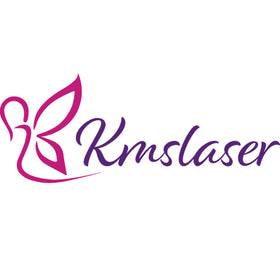If you are a brand owner, distributor, beauty salon or spa operator, one of the key elements that should be considered in your business is scientific progress. With the advancements in medical science and technology over the past decades, there has been an increased focus on treatments that provide effective healing to conditions like nerve damage. Shockwave therapy is fast becoming one of these treatments – but does it really help with nerve damage? In this blog post we discuss what shock wave therapy entails, how it works and whether or not it can effectively treat nerve damage.
Understanding the Basics of Shockwave Therapy
Shockwave therapy has become an increasingly popular treatment option for various conditions such as plantar fasciitis, tennis elbow, and tendinitis. But what exactly is it? Shockwave therapy involves applying high intensity sound waves to the affected area , which stimulates the body's natural healing process by increasing blood flow and metabolic activity. This non-invasive and safe procedure requires no anesthesia and has minimal side effects. It may sound intimidating, but shockwave therapy has provided immense relief for many patients who have struggled with chronic pain or injuries. Understanding the basics of this therapy can help you make an informed decision about whether it's the right treatment option for you.
What is Nerve Damage and How Does it Occur
Nerve damage can have a profound effect on one's quality of life. The nervous system controls everything from our movements and sensations to our thoughts and emotions. When nerve damage occurs, this intricate network can become disrupted , resulting in a range of symptoms such as pain , weakness , and numbness . The causes of nerve damage are vast and varied, ranging from physical trauma to infections and metabolic disorders. Additionally, nerve damage may be a byproduct of certain medical treatments and medications. Despite the many causes of nerve damage, one thing remains constant: the importance of early diagnosis and treatment to minimize the impact of this condition on a person's life.
What are the Benefits of Shockwave Treatment for Nerve Damage
Nerve damage can be a debilitating condition that affects many individuals. Luckily , there is a treatment option that can offer relief - shockwave treatment. Shockwave therapy involves using high - frequency sound waves to stimulate healing and promote tissue regeneration . The therapy has many benefits, including increased blood flow, reduced pain, and improved mobility. Additionally, it has shown promising results in treating nerve damage , including conditions such as carpal tunnel syndrome and sciatica. Shockwave treatment for nerve damage is a minimally invasive and effective option that can help alleviate symptoms and improve overall quality of life.
Is Shockwave Therapy Safe for Treating Nerve Damage
When it comes to treating nerve damage, many patients and doctors are turning to a relatively new technology known as shockwave therapy. This non-invasive procedure uses sound waves to stimulate the body's n atural healing processes and promote tissue regeneration. But with any medical treatment, safety is always a top concern. The good news is that shockwave therapy has been shown to be a safe and effective option for treating a variety of conditions, including nerve damage. In fact, many patients have reported significant improvement in their symptoms after undergoing shockwave therapy. Of course, as with any medical treatment, there are some potential risks and side effects to consider. That being said, when administered properly by a t rained professional, shockwave therapy can be a safe and effective way to treat nerve damage and other conditions.
What is the Process for Shockwave Therapy on Nerves
Shockwave therapy is a promising treatment for those suffering from nerve-related conditions like carpal tunnel syndrome, tennis elbow, and plantar fasciitis. Unlike traditional treatments that rely on medication or surgery , shockwave therapy uses high-energy sound waves to target damaged nerves and stimulate the body's natural healing process. This innovative approach offers patients a non-invasive, cost-effective, and relatively pain-free solution that can decrease recovery time and improve overall function. The process typically involves several sessions over the course of a few weeks, and patients may experience some temporary soreness or swelling after each treatment. However, the benefits of shockwave therapy on nerves can be life-changing, making it a popular choice among those seeking alternative therapies.
Where Can I Find a Qualified Practitioner to Perform Shockwave Treatment for My Nerve Damage
Nerve damage can be a debilitating condition that deserves the best possible care. If you're looking for a qualified practitioner to perform shockwave treatment, you might be curious about where to start. Fear not! There are many resources available to help you find the right person for you. Consider reaching out to local hospitals or clinics, consulting with your primary care physician , and checking online for reviews and recommendations. Above all, be sure to ask plenty of questions and do your research to ensure that you receive the best care possible. With a little effort and patience, you'll be able to find the practitioner that suits your needs and get the treatment you deserve.
Shockwave therapy for nerve damage has become increasingly popular as a form of treatment in recent years, offering a variety of benefits including increased nerve function, improved nerve functioning, and relief from pain. While there are some risks involved in shockwave therapy for nerves, it is generally considered to be a safe option when applied appropriately. Furthermore, depending on the severity of your condition and injury, your physician may suggest that you seek out additional care from a qualified provider who specializes in shockwave therapy. Ultimately, understanding the basics of shockwave treatment for nerve damage can be incredibly helpful when considering this form of treatment. Doing research to identify reputable providers and learning about the proper procedure for shockwave therapy may ensure its success when faced with nerve-related issues.

